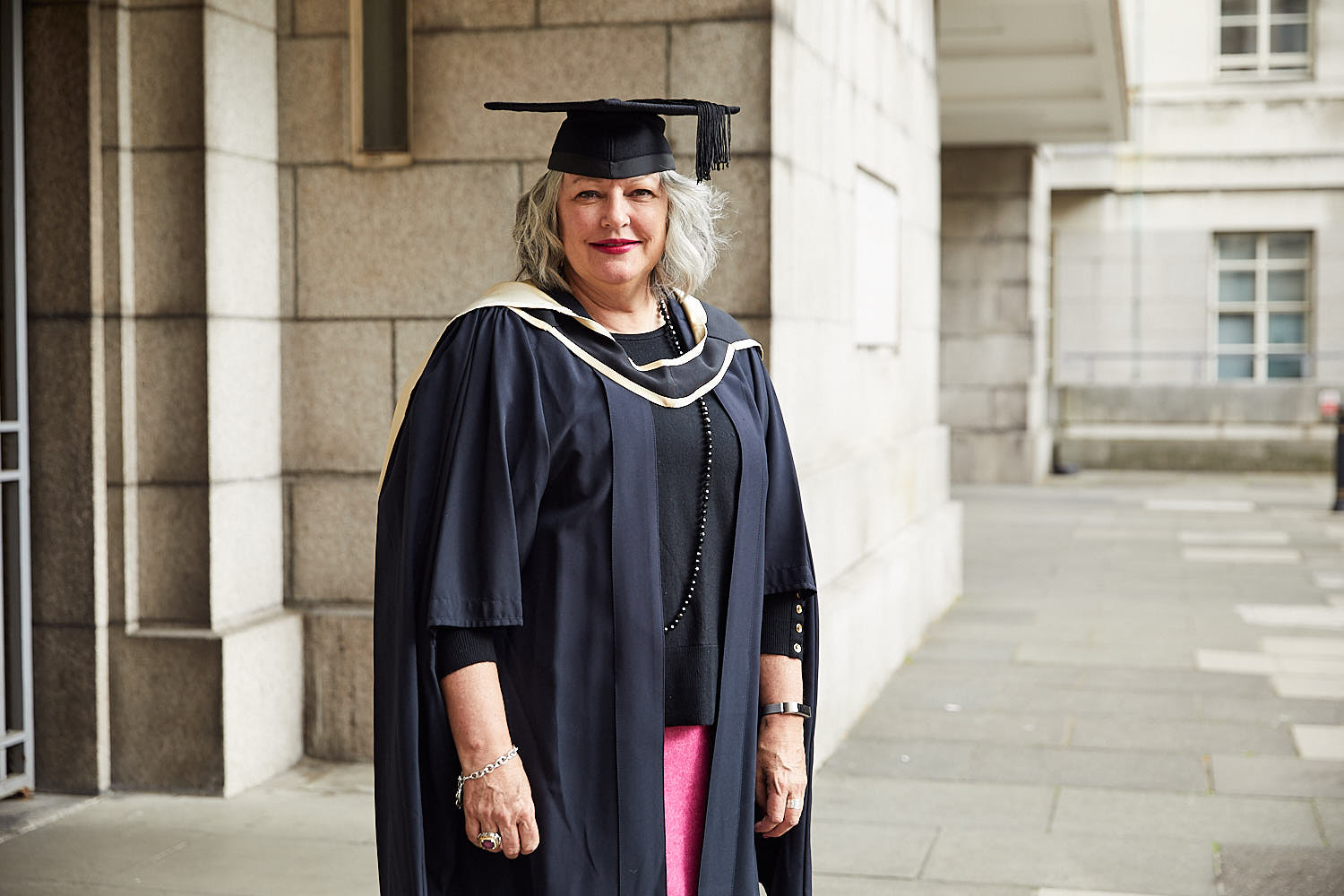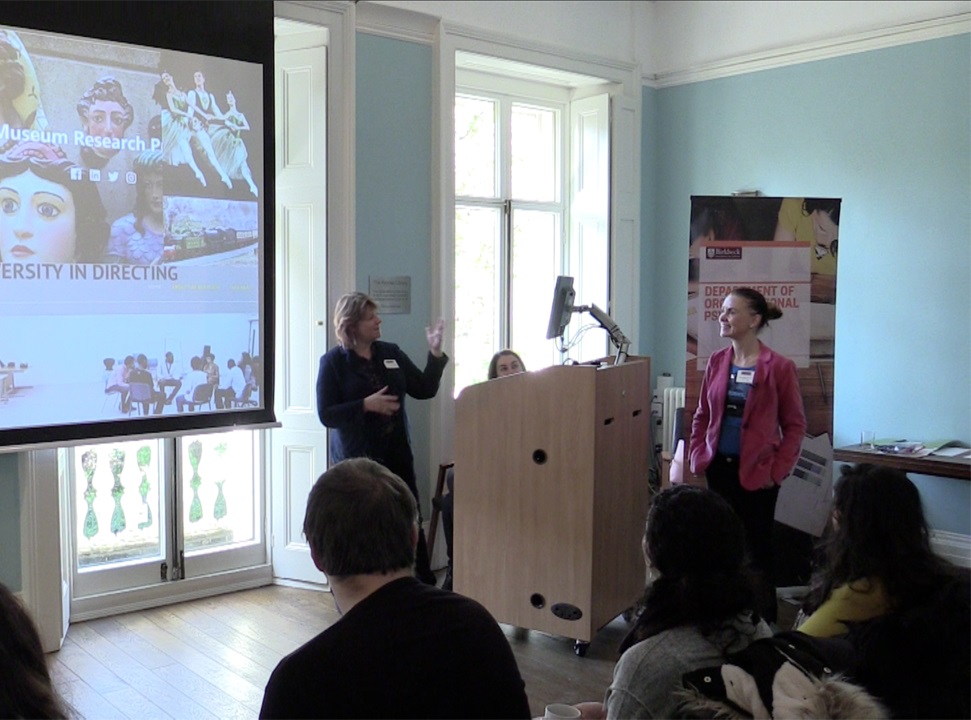For Jodie Cole, who graduated on Thursday 2 May with an MSc Organizational Behaviour, the path to graduation has been longer and harder than she could have envisaged when she applied to study at Birkbeck in 2012, 16 weeks before being diagnosed with stage four cancer. Given a 23% chance of survival, Jodie was determined that she would get the degree she’d always dreamed of having.
 For most Birkbeck graduates, receiving their degree represents the culmination of many months or years of hard work.
For most Birkbeck graduates, receiving their degree represents the culmination of many months or years of hard work.
For Jodie Cole, who graduated on Thursday 2 May with an MSc Organizational Behaviour, the path to graduation has been longer and harder than she could have envisaged when she applied to study at Birkbeck in 2012, 16 weeks before being diagnosed with stage four cancer.
Since then, Jodie has undergone four rounds of cancer and treatment, and will this month be celebrating not only her graduation, but 18 months cancer-free.
In 2012, Jodie had been working in HR for over two decades, and had a college diploma from her native Australia. However, she felt what she describes as a ‘burning passion to obtain this elusive piece of paper, in order to quiet that saboteur voice inside my head and prove to myself that I was as good as everyone else’.
Jodie, who lives in Geneva, Switzerland, explains: “I was the single mother of two teenagers. I never had the time or finances to further educate myself before that – it was poured into the children’s education. Once I was finally able to, in late 2012, as my teenage daughter applied to universities, so did I.”
A few months later, in early 2013, Jodie’s application was forgotten about, as she was diagnosed with stage four cancer; cancer in the breast, liver, ovaries, lymph nodes and bone. She says: “As I lay on the sofa feeling ill from the chemotherapy treatment, an email popped into my inbox stating the university had accepted my application for the Master’s programme.
“What was I to do? This meant so much to me, and was something I had wanted so badly for so long. I was finally being offered a position at university and the possibility of achieving a major goal – a dream – of mine. How can I do this, yet how can I not?!”
So, despite having no hair, feeling sick, and having cancer, Jodie pressed the button that said ‘accept’.
In October that same year, after 18 weeks of chemotherapy, a double mastectomy and still in the middle of her treatment, Jodie arrived in London as a university student for the first time, for the first weekend workshop.
“I turned up with a gleam in my eye and pride in my heart. I had made it this far, been accepted, got through cancer and was sitting there in a real university lecture hall. The feeling was exhilarating.”
During that first weekend, Jodie met fellow students whose friendship and support was invaluable during that year.
Unfortunately, Jodie’s breast cancer returned before the second year commenced and she had to defer her studies for another double mastectomy and more treatment. Most of her friends continued their studies and went on to graduate without her. Disheartened to be left behind but still keen to complete the programme, she was in the process of enrolling once again the following year when she was diagnosed for a third time with breast cancer. Her studies were deferred again. It took her many months to recover from this round as a more radical double mastectomy was required, followed by weeks of radiotherapy. When she thought there was a light at the end of the tunnel, her fourth diagnosis revealed she had liver cancer again.
She remembers: “I was becoming a broken record at the university admissions department. ‘Sorry, I have cancer, can I please defer?’ That piece of paper felt like it was getting further and further away from reality for me.”
It was in October 2017, while still on chemotherapy that Jodie says she: “threw caution to the wind and re-enrolled for my final year, determined to remain cancer free and complete my Master’s. That piece of paper was like a shiny beacon in my world. I wanted it, I had to have it, I was determined.”
The reality of studying while on chemotherapy was tough. Jodie describes it, saying: “the chemo was addling my mind, making me tired. Plus, I was now working on this alone at home, with no more comrades in arms like my first year. I was distance-learning, logging in remotely to listen to lectures and study at hours that suited me (and the doctors’ schedule). Sitting exams was the toughest part for me as my memory was not what it used to be at all, and then there was the research and writing of the dissertation. I am absolutely sure all of my girlfriends and family were just as pleased and relieved as I was the day I mailed in my dissertation paper.”
When Jodie received her ‘confirmation of award’ letter from Birkbeck it was a moment of intense emotion. She says: “To me, the piece of paper represents survival. It represents crossing that finishing line and being given the gold medal – for everything I’ve been through in the past six years, and for being alive. That piece of paper means believing in myself, in achieving my goals and that I CAN do anything. That piece of paper is success.”
Further information:



 For most Birkbeck graduates, receiving their degree represents the culmination of many months or years of hard work.
For most Birkbeck graduates, receiving their degree represents the culmination of many months or years of hard work.